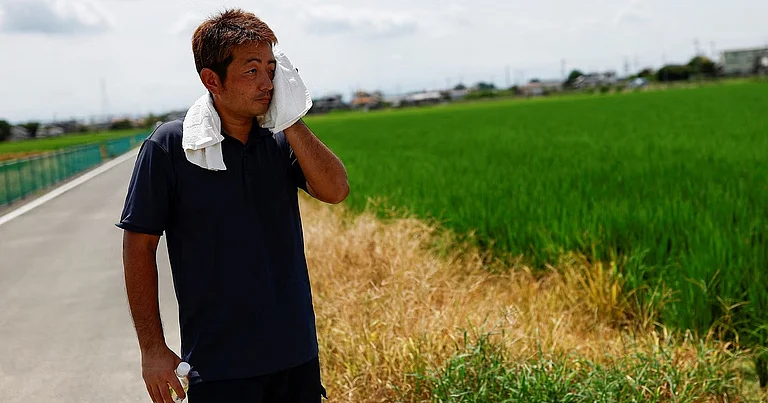It was a sunny Monday morning on July 21 in Tokyo but a dark day for Japan’s Liberal Democratic Party (LDP) and its ally Komeito who lost their majority in the House of Councillors for the first time in 70 years. The LDP’s power in Japan is a phenomenon called the 1955 System—the party has ruled the country almost continuously since its foundation in 1955.
LDP and Komeito needed to win 50 seats on top of the 75 seats which they had to retain their majority. The coalition won only 47. The LDP’s loss in the 248‑seat House of Councillors signals a shift not just for Japan’s domestic policies but also its role in the global stage.
However, even as LDP smarts from a bruising defeat, Japanese Premier Shigeru Ishiba vowed to remain in his post, prompting some in his own party to doubt his leadership as the opposition weighed a no-confidence motion, reported Reuters.
"I will stay in office and do everything in my power to chart a path toward resolving these challenges," Ishiba said, adding that he intended to speak directly with U.S. President Donald Trump as soon as possible and deliver tangible results. Ishiba also hinted at other pressing matters, such as rising consumer prices.
LDP’s Defeat & Japan’s Cost Of Living Crisis
While Japan is a constitutional monarchy, the past two years have revealed slack in the previously firm grip the LDP had on the country’s government. In October 2024, Ishiba lost the lower house elections, with the votes tallying up to LDP’s worst numbers in over 15 years, and leaving the prime minister to preside over a minority government.
Rising costs of living have plagued Japan. In particular, the rising food prices— cost of rice in Japan shot up by eight per cent in the first half of 2025— coupled with a three per cent inflation rise has fuelled the Japanese citizens’ anger against the ruling party.
Japan’s two main opposition parties, Constitutional Democratic Party (CDP) and Democratic Party of the People (DPP)’s pledges to cut taxes and double down on social welfare schemes appears to have struck a chord with the country’s citizens. Meanwhile, Sanseitō, a fledgling far-right party, managed to capitalise on the country’s increased nationalist, anti‑immigration rhetoric and win 14 seats for the first time.
Corruption Scandals Darkened LDP’s Image
In late 2023, LDP was embroiled in a massive fundraising scandal when allegations surfaced that senior party figures had diverted campaign funds into overseas accounts. While no criminal charges emerged from the accusations, LDP’s image in Japan was tarnished and there was public outcry over potential abuse of power. By June 2025, polls showed that only 28 per cent of Japanese people said they trusted the government to manage public funds. In 2023, prior to the scandal, polls had said that 54 per cent trusted the government.
Having lost his majority in the lower and upper houses, Ishiba is likely to face resistance to pass even routine measures for governance. Japan is set to debate its 2025 fiscal budget and its emergency relief funds for flood-plagues districts in the coming months. The defeat means that Ishiba would have to seek alliances with opposition parties such as the CDP and DPP on a case-by-case basis. Rejection of government bills by either house would also mean that Ishiba could face no-confidence motions, which would be another first for the LDP.
A Nation on Watch
Japanese production is a huge part of global supply chains for automative and electronic goods. Already, Tokyo was facing an August 1 deadline to secure a tariff deal with the United States. Japanese automakers export over 75 per cent of their production, and heavily depend on tariff‑free access to the US market. American President Donald Trump and Ishiba have been in talks attempting to close in on 24 per cent reciprocal tariffs on cars, steel, and aluminium. LDP’s loss was also felt immediately in the financial markets—the yen dropped to 156 per US dollar within hours of the vote.
The country is under constant pressure from its neighbouring countries, in particular China and North Korea. Since last year, Japan has increased its defence spending toward the NATO benchmark of two per cent of GDP, but Trump has also made his intentions to withdraw US troops from the region. Ishiba’s push to increase Japan’s budget are likely to fail without a majority, which would leave the region in a turmoil.
A weakened Japan would likely struggle to get support for its initiatives such as the Quad security dialogue with the United States, India and Australia.















